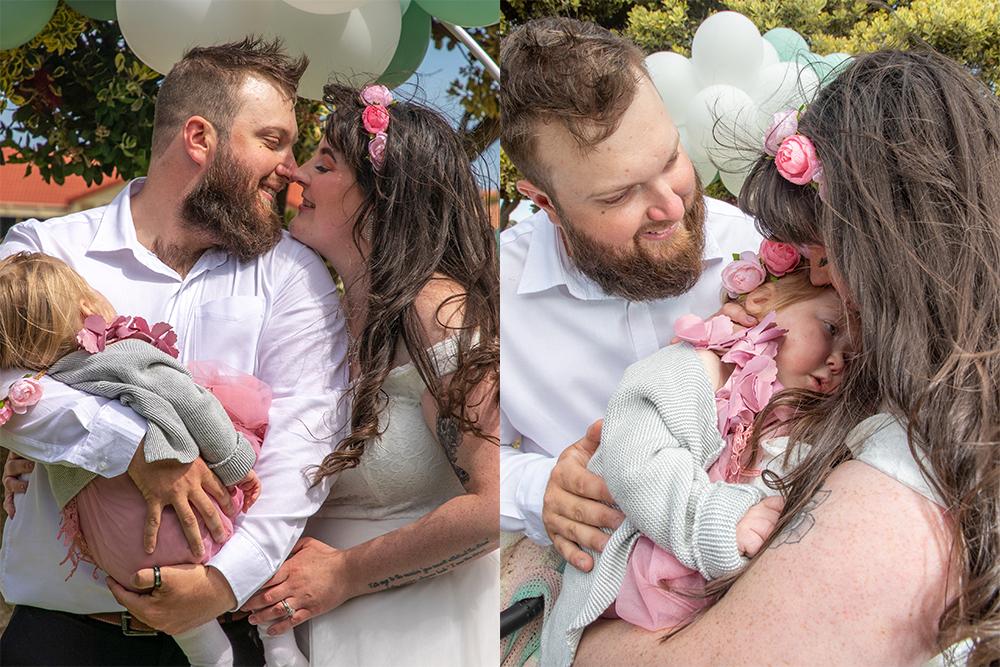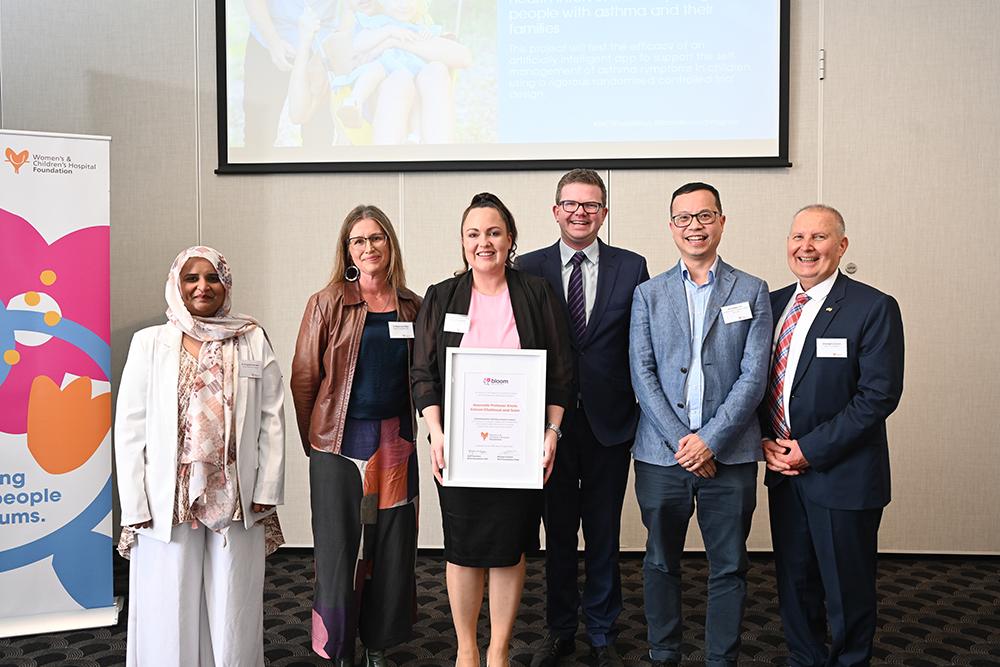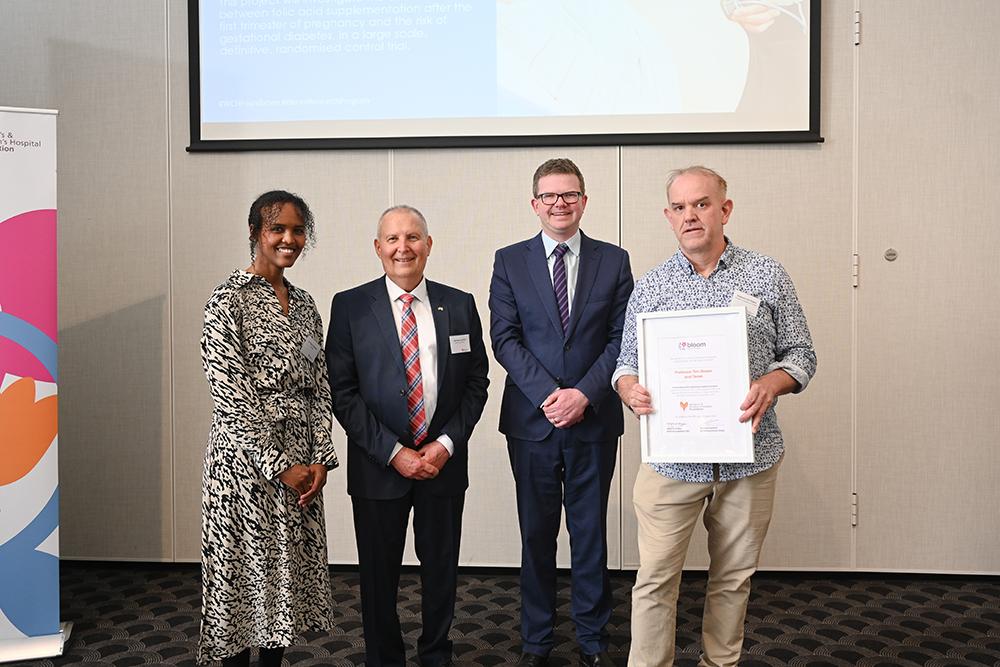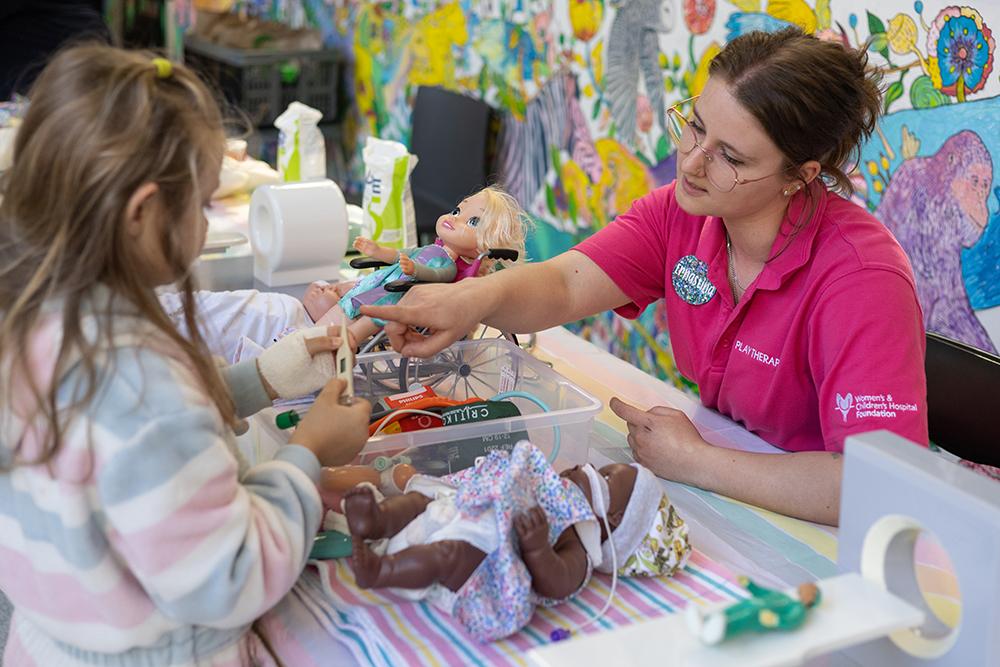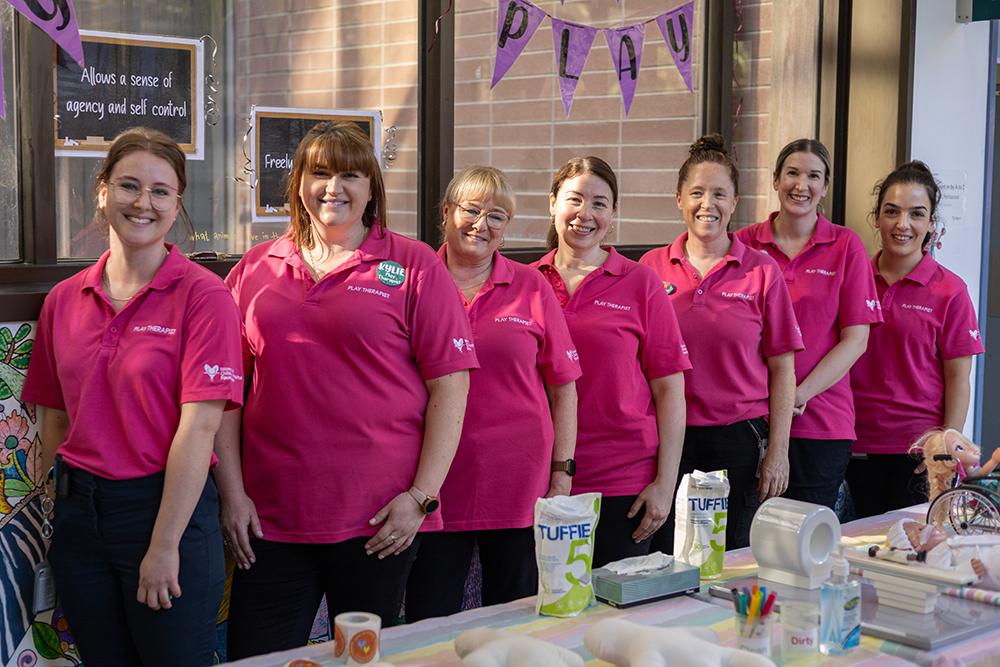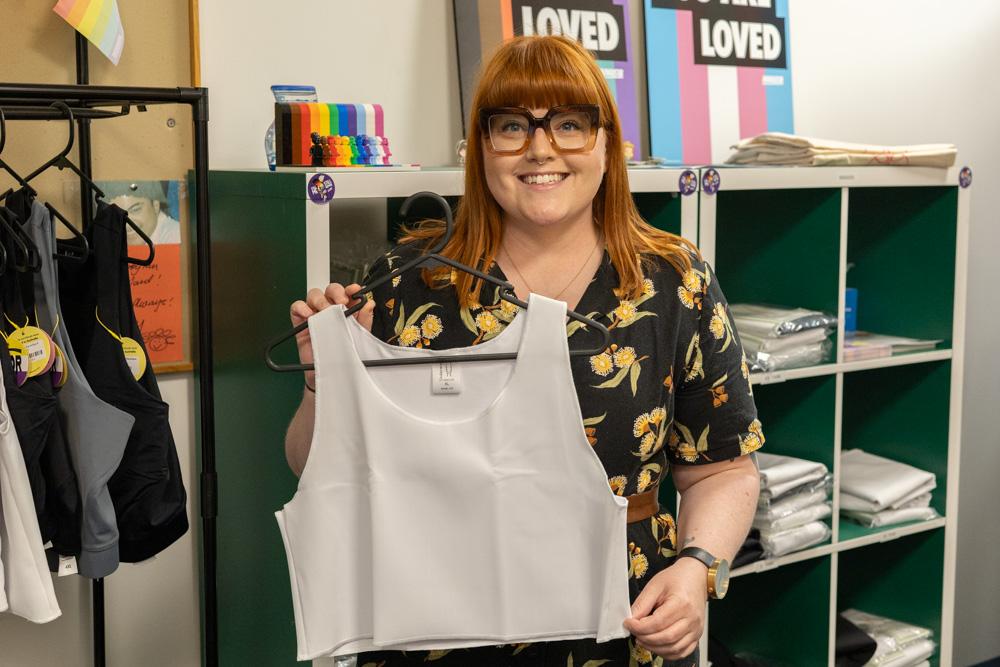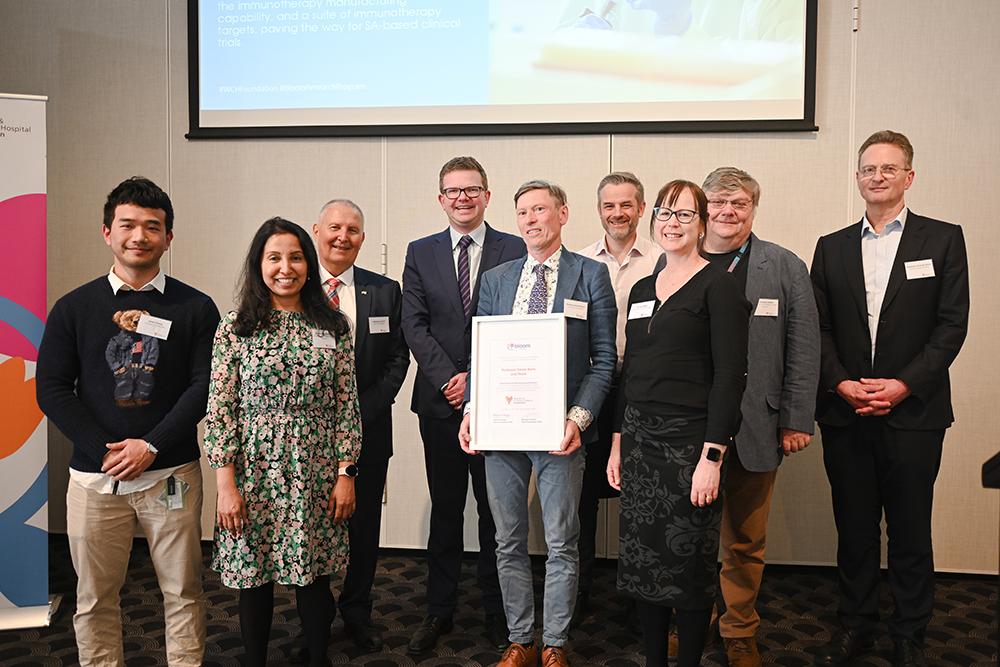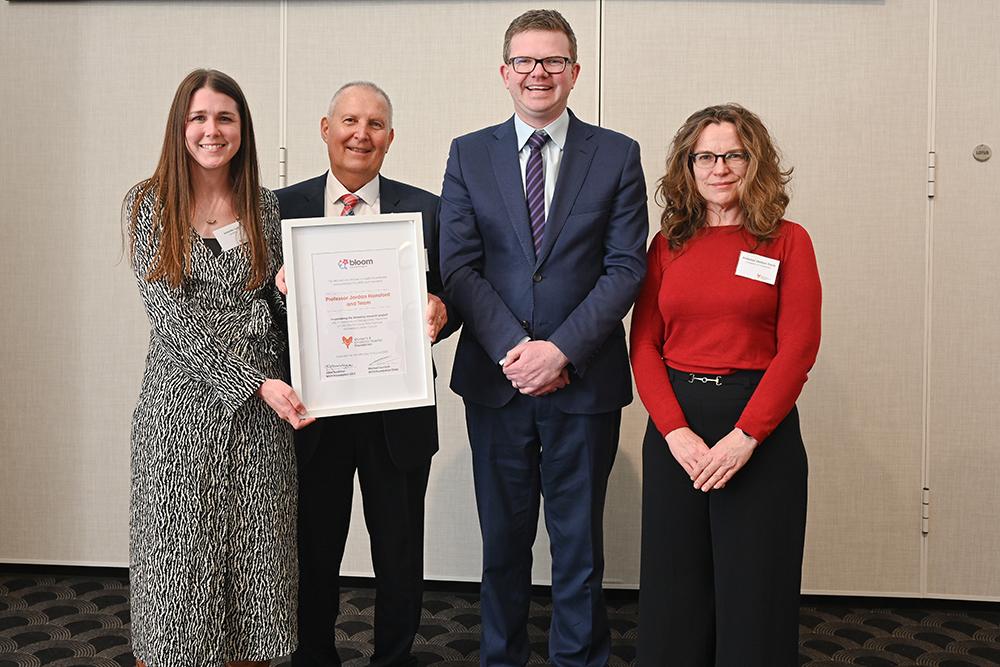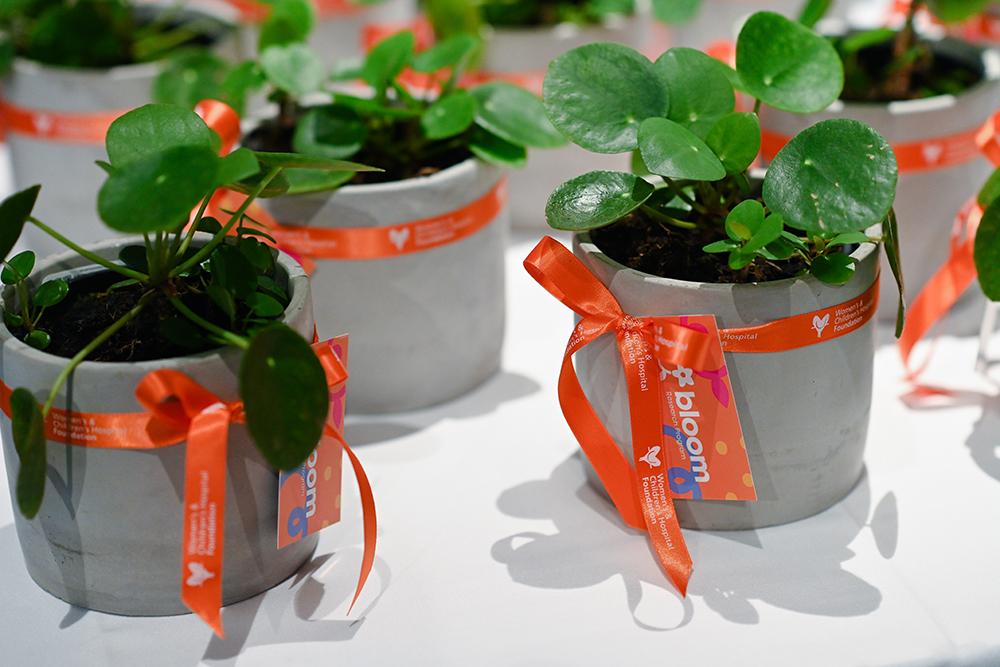The WCH Foundation has been proud to exhibit the work of First Nations primary school children from across the state in our Arts in Health exhibition ‘What Matters to Me’ as part of Tarnanthi festival.
In 2023, ‘What Matters to Me’ was a presence for young First Nations artists in the Women’s and Children’s Hospital Blue Heart Gallery.
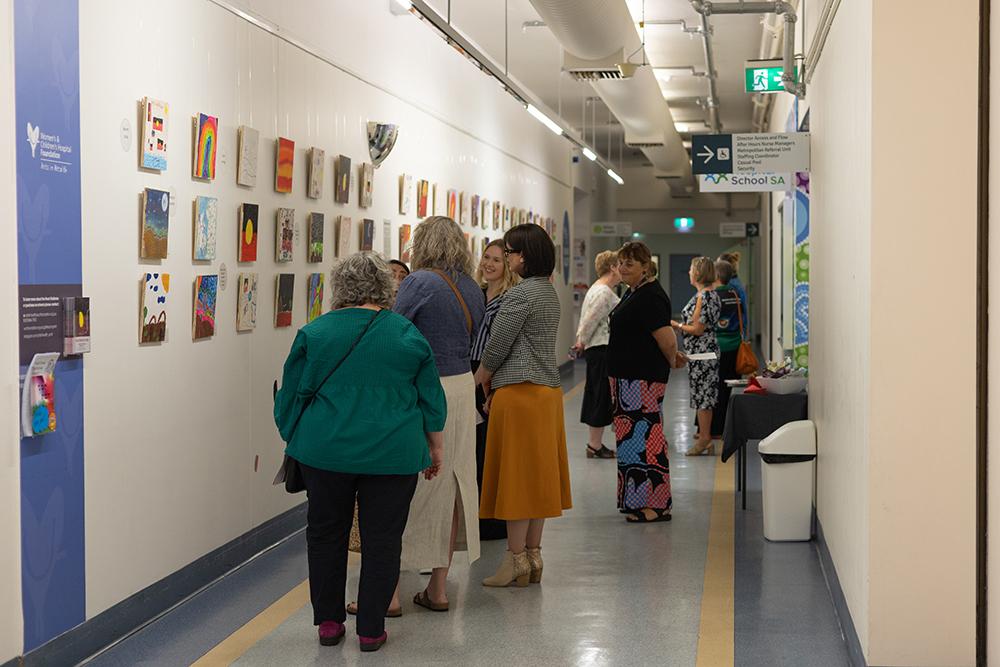
A gathering to showcase ‘What Matters to Me’.
Exhibition
Our Arts in Health Program created an opportunity for young First Nations children to have their voice heard in the Hospital.
Primary school children from Central Yorke School (Maitland and Point Pearce), Amata Anangu School (APY Lands), Avenues College (Adelaide) and Hospital School SA created paintings and wrote messages on what is important to them.
This exhibition empowered the young artists, providing them with a presence to creatively express their thoughts about what is important in their lives.
Catherine Leane, Manager Strategic Partnerships, Aboriginal Health Division, Women’s and Children’s Health Network, says:
“As an Aboriginal person, coming into the hospital environment can be pretty scary and overwhelming. Any way we can use Aboriginal art to welcome families, to help them feel connected and safe, is a good thing.”
By including images from young people living in regional and remote areas, as well as from Adelaide, this exhibition helped the whole Hospital community make links to home and to Country and form connections with culture.
In discussions with students from Central Yorke School on Narungga Country about what matters to them, 9-year-old Kym answered, “Family.”
When asked, “Just one word?” he replied, “One word can make a big difference.”
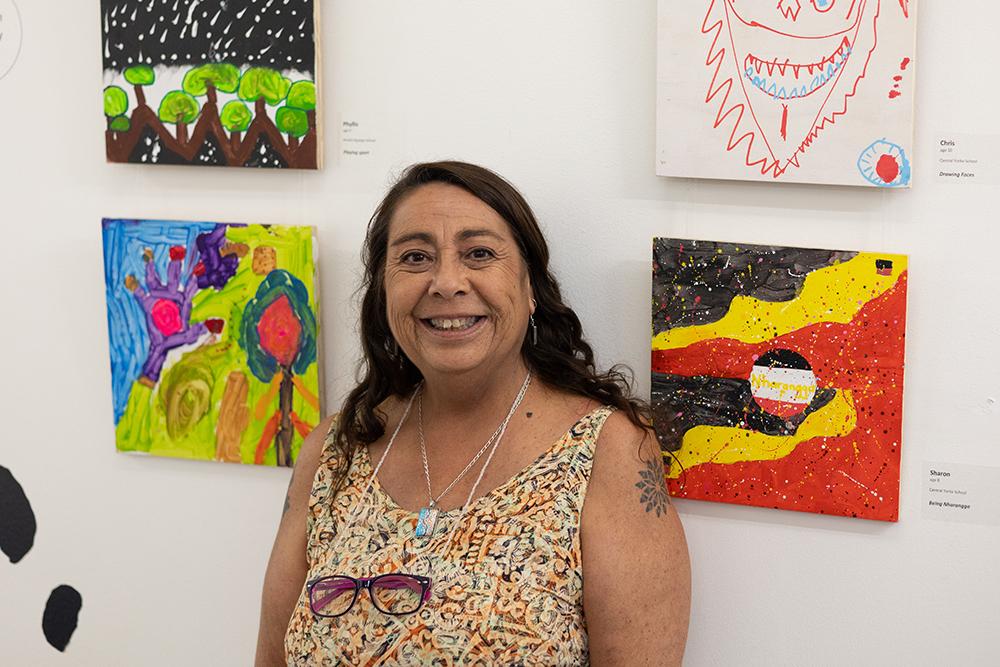
Amata Anangu School art teacher, Alejandra Catalan, with some of her student’s artworks.
Gatherings
Over the course of the exhibition, we hosted gatherings to showcase these students’ wonderful work.
In late 2023, we were excited to host members of the National Indigenous Australians Agency (NIAA), a group who lead and influence change across government to ensure Aboriginal and Torres Strait Islander peoples have a say in the decisions that affect them.
In early 2024, we held a gathering that included exhibition partners from the Art Gallery of South Australia’s Tarnanthi team and staff from the Women’s and Children’s Health Network (WCHN) Aboriginal Liaison Unit. We were also excited to welcome Alejandra Catalan, the art teacher from Amata Anangu School, and the WCHN interim CEO Rebecca Graham.
We then were happy to invite a group of in-service and pre-service teachers to view the exhibition as part of a teaching and leadership course they were attending in North Adelaide through Teach for Australia.
These gatherings were a valuable chance to discuss the importance of young people creating art and hearing the voices of First Nations young people around the state.
The key takeaway messages we learnt from the young First Nations artists were the importance of family, their connection to Land and being proud to be Aboriginal.
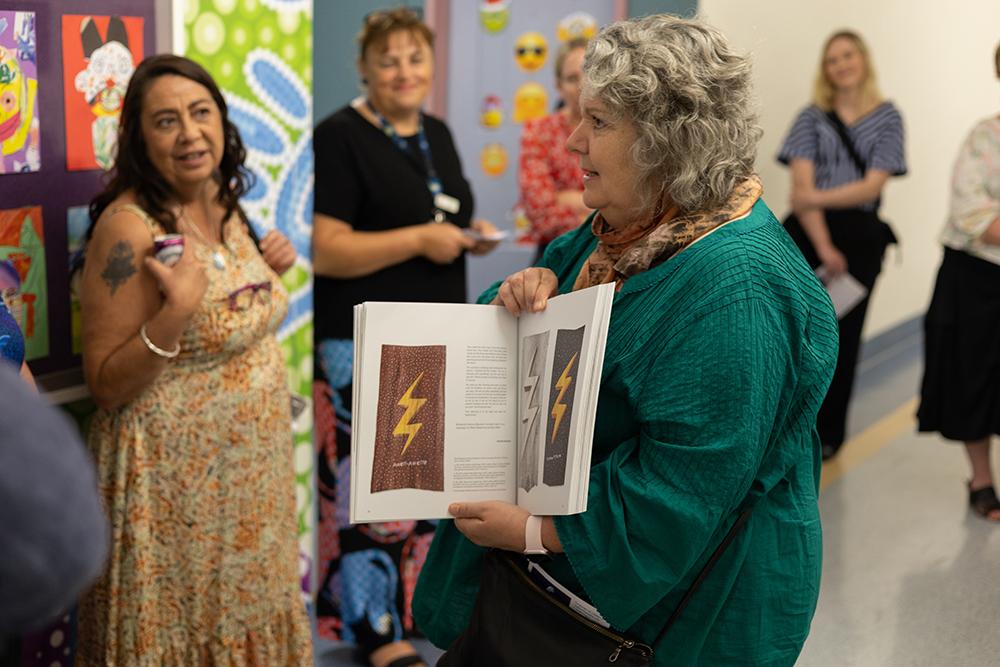
Tarnanthi Director, Nici Cumpston OAM, sharing the Tarnanthi catalogue at one of the gatherings.


